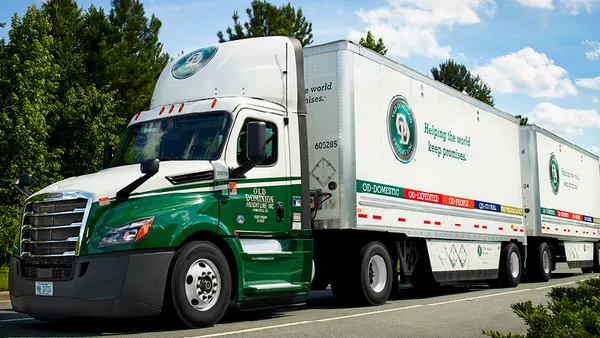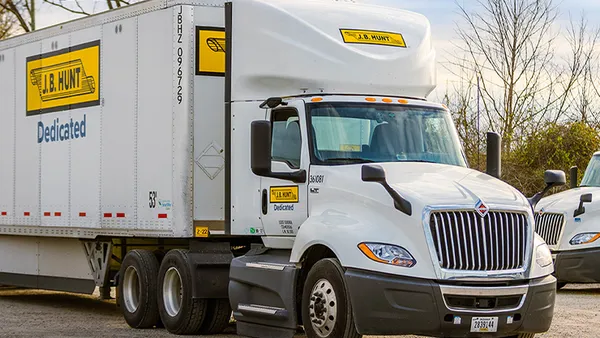Dive Brief:
- Freight expenses are cutting into General Mills' margins, according to its latest earnings report. "I will tell you that ... our logistics network costs have gone up," in response to high levels of demand, CFO Kofi Bruce said on an earnings call Wednesday.
- General Mills, facing increased demand, needed to secure freight lanes and capacity from the spot market, where rates are high, Bruce said, adding the company is seeing mid-single-digit inflation in the freight market.
- "As we are exposed to the spot markets on those external supply chain lanes, the cost of delivering to customers and distribution centers is higher," Bruce said on the call. But he said he expects those costs to abate once supply and demand level out and General Mills' inventory is balanced.
Dive Insight:
General Mills expects its margins in the current quarter to end up below 2019 levels, despite "phenomenal volume leverage" and "the best pricing in years," a Goldman Sachs analyst pointed out on the call. "I am trying to wrap my head around it," the analyst said, asking what the offsets were. Third-party logistics was the first item to which Bruce pointed.
Capacity procurement has been a challenge for shippers across the board. The van load-to-truck ratio was up nearly 309% YoY in February, according to DAT, while spot rates were up 34%.
"2021 will be historic for loads available vs. trucks available with the highest [ratios] ever recorded in the trucking history," one shipper commented in Morgan Stanley's Truckload Sentiment Survey emailed Wednesday.
In that survey, carriers noted the effect the driver shortage is having on truck availability. Though one shipper and one carrier mentioned the market seemed like it was beginning to settle, at least in some cases.
Winter storms have also contributed to high truck costs. Bruce said General Mills needed to open new freight lanes to reach external supply capacity and "reposition within the network," which yielded weather-related, incremental costs. Though he didn't directly say which weather event he was referring to, Bruce mentioned later on the earnings call that the winter snowstorm in Texas "elevated demand quite a bit."
Until the market settles down completely, shippers have to decide how to address rising logistics costs. General Mills has chosen to absorb the expenses, though not every company can afford to do that. Dollar General is taking a somewhat unique approach, electing to expand its private truck fleet in an effort to mitigate transportation costs.
Shippers on the parcel side are also contending with clogged logistics networks and higher costs. Stitch Fix is focusing on diversifying its mix of parcel carriers for outbound shipments and returns, to try to mitigate longer cycle times.













